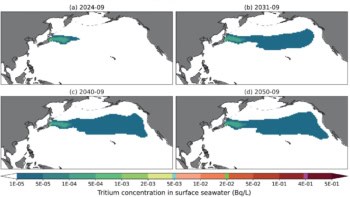
The UK fusion scientist Ian Chapman has been named as the next chief executive of the UK Atomic Energy Authority (UKAEA). On 1 October Chapman will succeed Steve Cowley, who has been head of the authority since 2009 and will become president of Corpus Christi College at the University of Oxford.
As head of the UKAEA, Chapman will lead the UK’s magnetic confinement fusion research programme at the Culham Science Centre in Oxfordshire. He will oversee the upgrade of the Mega Amp Spherical Tokamak, which is set to be ready in 2017, as well as the operation of the Joint European Torus (JET) – one of the world’s largest nuclear fusion devices. He will also lead the UKAEA’s other activities at Culham, including the recently opened Materials Research Facility, the RACE robotics centre and the Oxford Advanced Skills apprentice training facility.
With an MSc in mathematics and physics from Durham University, Chapman began working at Culham in 2004 while completing a PhD with Imperial College London. In 2014 he was named head of tokamak science at Culham and then became fusion programme manager a year later. Aged just 34, Chapman will be one of the youngest chief executives of a major research facility. “While I am young, I am also experienced,” he says. “I hope my profile means that fusion, and its huge potential to give the world cleaner energy, will get noticed.”
Broad portfolio
Chapman comes into the job at a crucial time for UK research following the country’s vote to leave the EU, which will be tricky to manage for Culham. The European Consortium for the Development of Fusion Energy – jointly run by 26 European member states and Switzerland – funds JET’s experiments. Cash for this is secure until 2018, but what happens after then is unknown. But Chapman told Physics World that he is confident about Culham’s future. “Science is an international endeavour,” he says. “I am positive for the future as we have a broad portfolio of activities.”
Indeed, the experiments carried out at JET will be crucial to the success of the ITER fusion experiment currently being built in Cadarache, France, when it turns on in the coming decade. While Chapman calls ITER “the most important experiment mankind has ever done”, he admits it is a “big challenge, with a lot of difficulties”. Yet he hopes that his appointment will inspire the next generation of scientist and engineers to make a success of the device. “It is my personal ambition to deliver fusion,” he adds.
Chapman’s appointment is backed by Culham’s outgoing boss. “Ian has risen quickly for good reason: he is a world-class scientist, a thoughtful manager, and a strategic thinker of the first order – astonishing in one so young,” says Cowley. “Culham is a precious UK asset and I am pleased that it will be in such good hands.”



